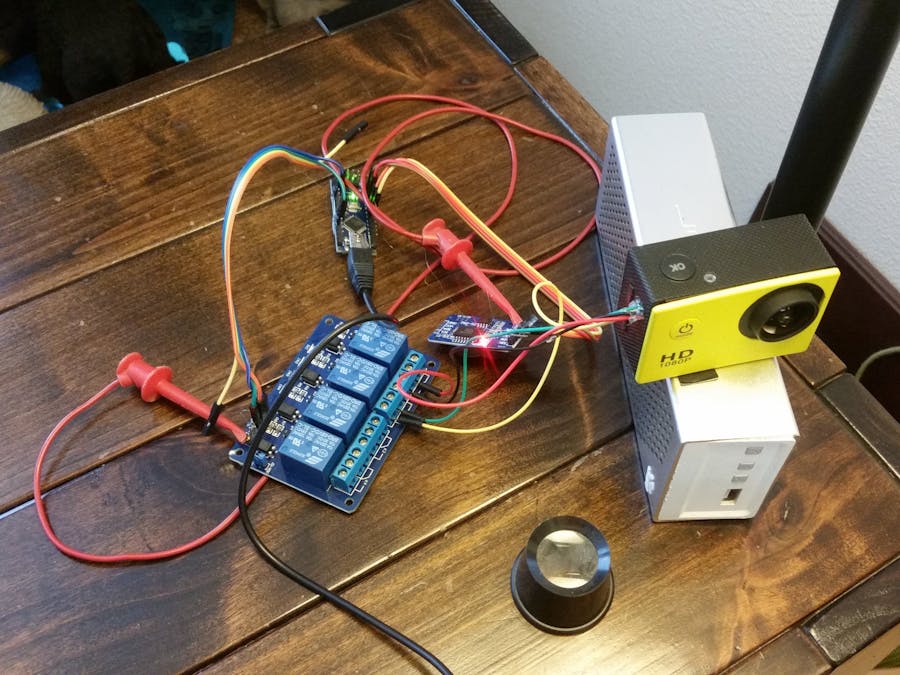My son is building a cabin and wanted to document the build. So I am trying to hack a cheap SJ4000 clone action camera to do that. I am using an Arduino nano, an RTC module, a 4 relay module and the SJ4000 clone.
The camera turns on at 0800 and takes a photo every hour until 1800, then turns off. At 0800 the next day it turns on and takes the ten photo series again, and repeats ad infinitum.
CH1 fires the first relay which controls the on/off switch and mode selection of the camera. CH2 fires the second relay that controls the camera shutter. Both relays are hard-wired to the normally open connections of the relays and to their respective switches on the SJ4000 clone.
The sequence starts at 0800 when the first relay fires to turn the camera on, after a ten second delay, to give the camera time to complete it's boot process, it fires again selecting the still photo mode of the SJ4000 clone. After a 3 second delay, to allow the camera time to switch modes, the second relay fires triggering the camera shutter. Another 3 second delay allowing the camera time to finish processing the photo, and the first relay fires again for 3 seconds, turning the camera off.
I copied the basis for this sketch from http://hack.lenotta.com/arduino-diy-stupid-plants-irrigator/ by Edoardo Odorico and Lorenzo Farnararo.







Comments